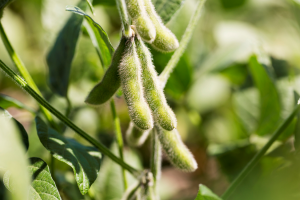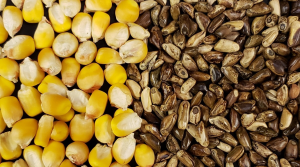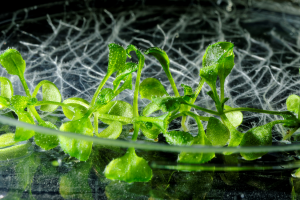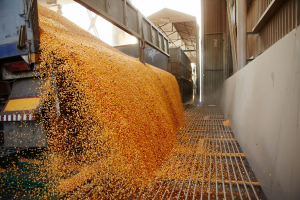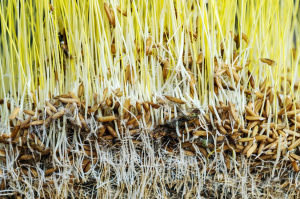Research conducted by the International Maize and Wheat Improvement Center (CIMMYT) has determined that climate change is affecting current plant breeding objectives, efficiency, and genetic gains, causing limitations to the breeding approach of the next generation. The goals for breeding and developing new crops have been changed by the rising demands for climate-ready crops, originating from the urgent need to adapt to climate change
Researchers from Ottawa Research and Development Centre and partners investigated the role of the soybean 14-3-3 gene Glyma05g29080 on white mold resistance and nodulation using CRISPR-Cas9 editing and RNA silencing. Their findings are published in the journal Molecular Plant-Microbe Interactions. The 14-3-3 gene family plays a vital role in physiological processes, such as controlling metabolism, hormone signaling, cell division, and responses to various biotic and abiotic stresses.
An Agrobacterium strain that cannot produce methionine is useful for switchgrass transformation, according to the University of Georgia and University of Colorado Boulder researchers. Their research paper is published in Transgenic Research. Agrobacterium tumefaciens has revolutionized plant science because it can transfer DNA into plant cells from a broad host range of species.
Teosinte high protein 9 (THP9) is a chromosome that encodes an enzyme vital to the nitrogen metabolism of teosinte, maize's ancestor. It is highly expressed by teosinte, but not by modern maize. Its recent discovery offers maize breeders better opportunities to develop new lines that can be grown under limited nitrogen conditions, while increasing the crop's seed protein content.
Swiss scientists from the University of Zurich and Agroscope were able to identify genes that promote cooperation and higher yields of plant populations when monoculturally grown. The findings can help breeders develop plants with increased productivity using conventional breeding methods. They theorized that the most cooperative genotype will perform best with similarly cooperative neighbors yet will exhibit poor performance when with a highly competitive company.
A study conducted at the Karolinska Institutet in Sweden reveals that CRISPR-Cas9, the widely used gene scissor, can modify the genetic content in cells to study the molecular roles of genes and has gained great clinical relevance in gene therapy to treat genetic diseases. The study found that the gene scissor leads to unexpected genomic changes. According to Claudia Kutter, principal researcher at the Department of Microbiology, Cell and Tumor Biology, at the Karolinska Institutet, they found that CRISPR-Cas9 can cause unpredictable on-target genomic effects that impact cancer cell growth.
Gene-edited agricultural products could have a significant market share of the Chinese seed market in the future, based on a survey conducted in 2019 among 111 Chinese seed companies. Seed companies play a role in the translation of technical advances into industrial advantages and in handing these benefits to the farmers. The study aimed to determine whether gene-edited crops will be available to farmers using the data from a survey conducted prior to the new policies that the Chinese government implemented in order to make it easier to industrialize gene-edited crops.
For the first time, scientists have used CRISPR gene editing technology to substitute a gene to treat patients with cancer. The new approach first identifies T cells that specifically recognize and kill an individual patient's tumor cells. T cells are a type of immune cell, and the cells in question kill tumor cells when they encounter specific genetic mutations from cancer.
An international team of scientists were able to identify candidate genes for further genetic research on the improvement of root phenotypes to respond to drought stress by examining the phenotypic and genetic correlations among rice root anatomical, morphological, and agronomic phenotypes.The team used more than 200 rice accessions from Southeast Asia for their study to identify root morphological and anatomical phenotypes related to rice productivity under stress.
Enzyme-mycotic seed depletion (EMSD) is a leading cause of loss in grain crops, destroying up to 60% of the crop. The development of EMSD is associated with adverse weather conditions when an increase in enzyme activity breaks down grain biopolymers into simple sugars and amino acids. Maintaining humidity helps plants deal with EMSD, but developing EMSD resistant crops is a more efficient way.


 Curently online :
Curently online :
 Total visitors :
Total visitors :

